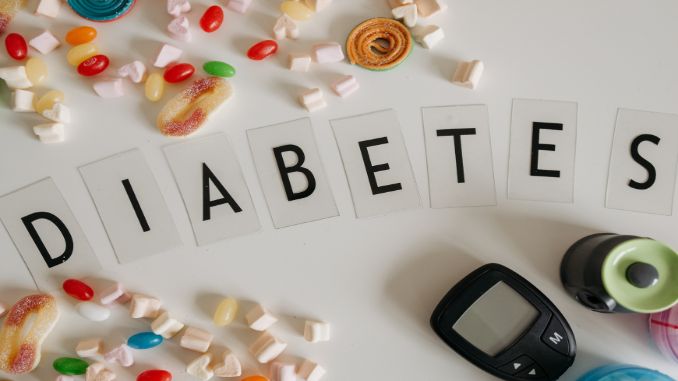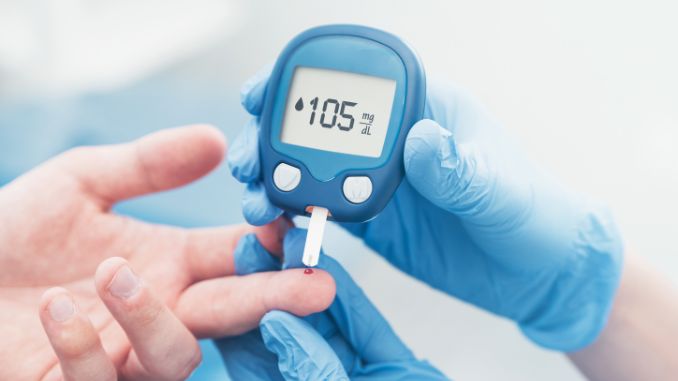Dealing with Diabetes-Related Weight Loss and Weakness: Coping Strategies and Support

Last updated on April 4th, 2025 at 06:52 pm
Millions of people globally suffer from diabetes, a persistent ailment that causes your bloodstream to have high glucose levels. Due to the body's inability to manage blood sugar levels, it is vital to recognize the typical symptoms of diabetes to receive timely treatment.
Often, people remain unaware of their diabetes condition until the symptoms worsen, making it crucial to be aware of the indications to seek medical care.
This article will discuss the two common symptoms of diabetes; unexplained weight loss and fatigue, and why diabetics lose weight and feel weak. We will also list healthy foods that are helpful for people with diabetes.
3 Main types of diabetes:
1. Type 1 Diabetes
A condition occurs when the body's immune system attacks and kills the insulin-producing cells in the pancreas. Insulin is responsible for regulating the levels of sugar in the bloodstream.
This type of diabetes typically occurs in childhood or adolescence and necessitates regular injections of insulin or the use of an insulin pump.
2. Type 2 Diabetes
When your body is resistant to insulin or cannot produce enough insulin to regulate blood sugar levels, it leads to type 2 diabetes, the most frequent form of diabetes.
This type of diabetes is commonly associated with lifestyle factors like being overweight, lack of physical activity, and unhealthy eating habits. It can be controlled through lifestyle modifications, oral medicines, or insulin injections. It is important to manage type 2 diabetes to prevent complications.
3. Gestational Diabetes
During pregnancy, some women develop a form of diabetes called gestational diabetes which typically resolves after delivery. This happens when hormones created by the placenta impede the body's insulin utilization.
This type of diabetes may increase the risk of complications. During pregnancy and childbirth and heighten the risk of developing type 2 diabetes. It is crucial to manage gestational diabetes during pregnancy to reduce potential negative outcomes.
Apart from the three primary categories, there exist other variations of diabetes, including monogenic diabetes triggered by genetic mutations and secondary diabetes resulting from other health issues such as pancreatitis or steroid consumption. It is essential to note that these forms of diabetes also exist.
Why do Diabetics lose weight?
Insulin is a hormone that makes your body consume sugar as energy. In Type 2 diabetes, the body cannot convert insulin into insulin or transport glucose to the cell. It builds up in your bloodstream.
It creates energy from burning fat and muscle at an extremely high rate, resulting in unexplained fat loss. This is also necessary to keep an eye on blood sugar and to keep it at a minimum for a long time. These use energy that may damage the kidneys.
Unexpected weight loss is a common occurrence among individuals diagnosed with diabetes. This tends to happen for a few reasons. It is important to understand the underlying causes to manage weight loss and diabetes better.
In addition, why weight loss is common among people with diabetes, and high blood sugar levels can lead to increased urination and dehydration. This can cause the body to lose water weight, contributing to overall weight loss and fatigue.
Furthermore, many individuals with diabetes experience decreased appetite due to fluctuations in blood sugar levels. This can lead to decreased calorie intake and subsequent weight loss.
It is important to note that while weight loss can be a positive outcome for individuals with diabetes, it should not be the primary focus of treatment. Proper management of blood sugar levels through medication, diet, and exercise should always be the top priority.
Why Does Diabetes Make You Feel Weak?
Those suffering from diabetes often has hypoglycemia. In both cases lowering the insulin levels reduces the ability to transport glucose into cells for energy and can increase tiredness resulting in a decrease in energy consumption.
This effect of feeling tired can also refer to diabetes fatigue. Diabetes fatigue doesn't necessarily harm your diabetes but is rather an indication.
Strategies to combat weight loss and fatigue
1. Stay hydrated
Ensuring proper hydration is essential for controlling weight loss and fighting tiredness associated with diabetes.
When blood sugar levels rise, it can lead to frequent urination, resulting in dehydration and electrolyte imbalances. This, in turn, leads to weakness and fatigue.
Maintaining sufficient hydration levels to avoid these problems and maintaining a healthy weight is vital. Drinking adequate water, keeping track of fluid intake, and consuming foods rich in water content are all straightforward methods for staying hydrated and promoting optimal health in diabetes.
2. Follow a healthy diet
A healthy diet is crucial for people with diabetes because poorly controlled blood sugar levels can lead to unhealthy weight loss, fatigue, and other complications.
When blood sugar levels are too high, the body’s cells may not receive the glucose they need to function properly, leading to fatigue and weakness.
Additionally, when blood sugar levels are uncontrolled, the body may begin to break down stored fat for energy, leading to unhealthy weight loss.
A healthy diet can help manage blood sugar levels by limiting the intake of foods that raise blood glucose levels quickly, such as sugary snacks and drinks, instead of focusing on foods that can help stabilize blood sugar levels.
3. Regular exercise
Regular exercise is an important strategy for combatting weight loss and fatigue in diabetics because it can help control blood sugar levels, improve overall health, and promote healthy weight management.
When diabetics exercise regularly, their bodies use glucose for energy, which can help lower blood sugar levels and reduce the associated symptoms of fatigue and weakness.
Additionally, exercise burns fats and promotes healthy weight management, which can help reduce the risk of complications related to diabetes.
4. Take medications as prescribed
Taking medication as prescribed is essential for diabetics to manage their condition effectively. For those with type 1 diabetes, insulin is a necessary medication their body cannot produce independently. For those with type 2 diabetes, their body is either insulin resistant or does not produce sufficient insulin to control blood glucose levels.
In either case, diabetes medication plays a critical role in glucose control and preventing the serious complications of diabetes. Underlying medical conditions can also contribute to diabetes; a doctor may prescribe other medications as part of the diabetes treatment plan.
Taking medications as prescribed can help control blood sugar levels and prevent the development of complications such as nerve damage, kidney disease, and slow healing.
5. Get enough sleep
Getting sufficient sleep is vital to optimal health, especially for individuals with diabetes. This chronic ailment hinders the body's capacity to effectively manufacture or use insulin, leading to elevated blood sugar levels.
The condition affects millions globally, necessitating a comprehensive approach encompassing a well-balanced diet, regular physical activity, and adequate sleep. Adequate sleep is crucial since it affects the individual's blood sugar levels, insulin sensitivity, and overall well-being.
According to research, inadequate sleep can increase the risk of individuals with diabetes experiencing high levels of blood sugar and insulin resistance. Additionally, lack of sleep may cause a craving for sugary and high-carbohydrate foods, worsening the condition.
People who do not get enough sleep may also feel exhausted, making it difficult to maintain a balanced diet and exercise regularly. Sufficient sleep is essential for regulating blood sugar levels and reducing stress, which is crucial for individuals with diabetes.
Furthermore, sleep plays a significant role in maintaining a healthy weight as it affects hormones that regulate appetite, preventing overeating and weight gain.
6. Manage Stress
Individuals with diabetes must prioritize stress management as the effects of stress on blood sugar levels can be significant and pose a risk to their life.
The production of hormones like cortisol and adrenaline, triggered by stress, can elevate blood sugar levels. This can result in severe health complications such as cardiovascular disease, nerve damage, and vision impairment.
Additionally, stress can lead to unhealthy habits such as overeating or neglecting medication, which worsen the situation. Hence, people with diabetes must manage stress effectively to maintain their health and wellness.
7. Monitor your blood sugar levels
Monitoring blood sugar levels is an essential aspect of diabetes care. Diabetics have a condition in which glucose builds up in their bloodstream due to their body’s inability to produce enough insulin or use it effectively.
Monitoring their blood sugar levels helps diabetics understand how their body responds to food, medication, and lifestyle changes and allow them to make necessary adjustments to maintain optimal glucose control.
Internal medicine specialist and other healthcare provider recommend that diabetics check their blood sugar levels several times a day to ensure that it remains within the appropriate range.
When blood sugars are high, it can lead to dry skin, excessive thirst, and fatigue. In contrast, when blood sugar levels are too low, it can cause weakness, confusion, and even loss of consciousness.
Keeping blood sugar levels within the appropriate range can help diabetics feel better and have more energy to complete everyday tasks. It can also help boost their body’s ability to fight infections and promote healing.
Foods and Recipes to help combat Diabetes
1. Leafy Greens
Vegetables like spinach, kale, and collard greens are excellent sources of vitamins, minerals, and fiber. They're also low in carbohydrates, which makes them a great choice for people with diabetes.
2. Whole Grains
Whole grains like brown rice, quinoa, and whole wheat bread are rich in fiber and complex carbohydrates. They take longer to digest than refined grains so they won't cause a spike in blood sugar levels.
3. Berries
Berries like strawberries, blueberries, and raspberries contain antioxidants and fiber. They're also low in sugar, making them a great choice for people with diabetes.
4. Nuts
Nuts like almonds, walnuts, and pistachios are high in healthy fats, protein, and fiber. They're also low in carbohydrates, which makes them a great snack for people with diabetes.
5. Fish
Fish like salmon, tuna, and mackerel are rich in omega-3 fatty acids, which can help reduce inflammation and improve insulin sensitivity. They're also low in carbohydrates, which makes them a great choice for people with diabetes.
Simple Recipes:
1. Quinoa Salad
Cooked quinoa mixed with chopped spinach or kale, berries, nuts, and a vinaigrette dressing makes for a delicious and nutritious salad. You can add some grilled chicken or fish to complete the meal.
2. Grilled Salmon
Season salmon fillets with herbs and spices like garlic, lemon, and dill. Grill them until cooked, and serve with roasted vegetables like asparagus or broccoli.
3. Berry Smoothie
Blend together frozen berries, Greek yogurt, almond milk, and a handful of spinach for a delicious and healthy smoothie. You can also add some chia seeds or flaxseeds for added fiber and nutrients.
4. Brown Rice Stir-Fry
Cook brown rice and set aside. In a wok or skillet, stir-fry chopped vegetables like bell peppers, broccoli, and carrots.
Conclusion
Having diabetes is not easy, you need to be mindful of many things, especially the food you eat. Food plays a very important role in the life of a diabetic person; It could make or break them, and aside from food, many factors contribute to weight loss and weakness for people with diabetes.
Diabetics may experience unexplained weight loss and weakness due to insufficient insulin, which can prevent the body from using glucose for energy. Unexpected weight loss can also occur when the body begins to burn fat for energy instead of glucose, leading to unintentional weight loss. Other symptoms may include excessive thirst, frequent urination, and fatigue.
Being able to eliminate processed foods and maintain overall body weight can help manage blood glucose levels and prevent further weight loss. However, underlying medical conditions, such as underactive thyroid or certain cancers, may also contribute to weight loss in diabetics.
Appropriate treatment for diabetes, including medications and lifestyle changes, can help regulate blood glucose levels and relieve symptoms. Factors such as stress, illness, and medication changes may also impact blood glucose levels and should be closely monitored by healthcare professionals.
Diabetes medication, a balanced diet, and regular exercise are all essential components of managing diabetes, and they work together to help reduce symptoms and promote overall wellness.
Rick Kaselj MS, is a leading kinesiologist and injury specialist as well as co-creator of the best-selling Unlock Your Hip Flexors program. Rick creates exercise programs that help people heal injuries and eliminate pain, so they can go back to living a full, active, healthy life.





















